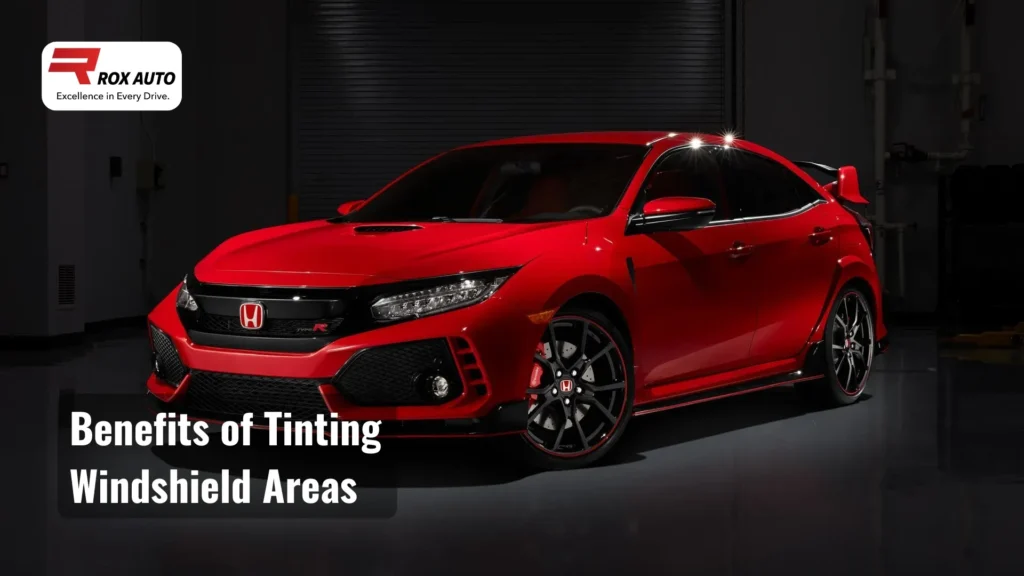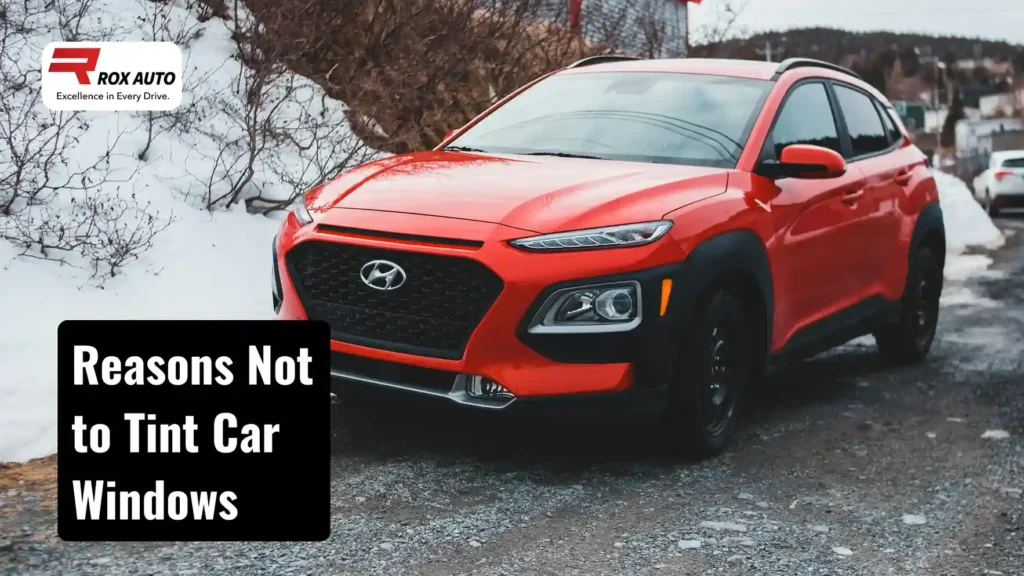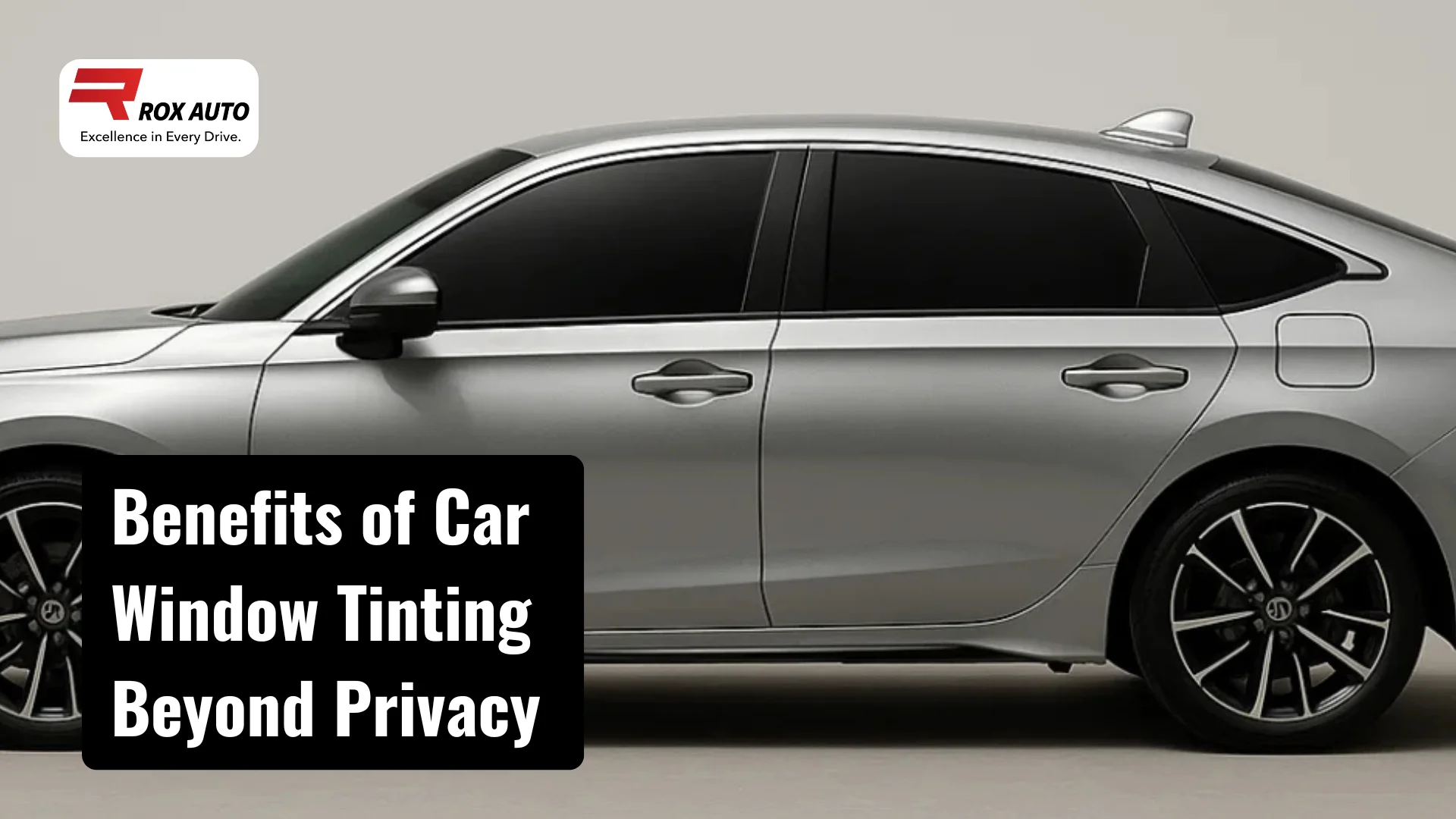Most drivers think of privacy when they hear the words window tinting. While darker windows can keep your car more discreet, the advantages of professional tinting go much further. From protecting your health to extending the life of your vehicle’s interior, tinted windows deliver a wide range of benefits that make driving safer, more comfortable, and more enjoyable.
In this article, we’ll explore why tinting car windows is about more than just privacy, look at the benefits of tinting windshield areas and side glass, and even touch on some reasons not to tint car windows so you have the full picture before making a decision.
Why Tint Car Windows?
The most straightforward answer is protection. Car window tinting shields you, your passengers, and your vehicle from harmful UV rays, heat, and glare. But beyond that, tinting creates a more controlled driving environment.
Drivers also often ask about the benefits of tinting car windows reddit discussions highlight—real-world feedback from fellow car owners usually emphasizes cooler cabins, less eye strain, and interiors that stay in better condition. When combined with modern technology, films today are engineered for durability and safety as well.
Health Protection on the Road
One of the most underestimated dangers of daily driving is UV exposure. Even if you don’t feel the sun directly on your skin, rays penetrate through untinted glass. Prolonged exposure increases risks of skin damage and eye strain.
With tinted windows, up to 99% of harmful UV rays are blocked. For people with sensitive skin, or those with conditions that require less sunlight exposure, there are even medical reasons to have tinted windows. In many regions, doctors can provide a certificate that allows a darker tint than what’s normally legal, ensuring patients stay protected while traveling.
Cooler Interiors and Energy Savings
Stepping into a car that’s been baking in the sun is an unpleasant experience. Seats get hot, dashboards heat up, and air conditioning has to work overtime to cool things down. Window tinting solves much of this problem by filtering solar heat before it enters the cabin.
This keeps the temperature lower and allows the AC system to operate more efficiently. Over time, that means less wear on your cooling system and better fuel economy since the car doesn’t need as much energy to maintain comfort.
Protecting Your Car’s Interior
Sunlight doesn’t just affect people—it also damages the materials inside your car. Leather seats dry out, fabric fades, and dashboards crack over time due to UV exposure. Tinting slows this process significantly, preserving the look and feel of your car’s interior.
If you plan on keeping your car long-term, tinting is a small investment that saves you from expensive upholstery repairs or replacements later.
Safety Benefits of Tinting
Beyond comfort, tinting also adds an element of safety. The film helps hold glass together if it breaks, reducing the risk of sharp shards scattering in an accident. For drivers, this added strength can make a difference during collisions or road debris impacts.
Tinting also cuts down glare from sunlight and headlights, which improves reaction times and reduces eye strain. For night driving or highway travel, the difference in visibility and comfort is noticeable.
Style and Value
There’s no denying that tinted windows improve the look of almost any car. From sedans to SUVs, tinting adds a sleek, professional finish. But this upgrade isn’t only cosmetic. Vehicles with professionally installed tint often hold their value better because the interiors are in superior condition and the aesthetic appeal is higher for potential buyers.
Some companies even offer premium tinting options. For example, drivers often search for tint world ultimate tint package cost when comparing top-quality film solutions. These packages typically include advanced UV protection, lifetime warranties, and custom shades designed for performance and durability.
Benefits of Tinting Windshield Areas

While side and rear windows get the most attention, many drivers overlook the benefits of tinting windshield sections. Legally, you can usually only apply a lighter tint strip across the top portion of the windshield, but even this small area makes a big difference. It reduces glare from sunlight and streetlights, making driving safer and less tiring.
For those in sunny climates, windshield tinting is often one of the most appreciated upgrades.
Reasons Not to Tint Car Windows

While tinting offers many advantages, it’s worth being aware of potential downsides too. Understanding the disadvantages of tinting car windows helps you make an informed decision.
-
Legal limits: Every state or region sets its own laws on how dark you can tint. Installing film darker than the legal limit could result in fines or the need to remove it.
-
Visibility at night: Very dark tints can make it harder to see in low-light conditions, especially when reversing.
-
Quality of installation: Cheap films can bubble, peel, or fade quickly, creating more problems than benefits.
These reasons not to tint car windows highlight why choosing a professional installer and the right film is important. With the proper balance of performance and legal compliance, most of the disadvantages are minimized.
Pros and Cons of Window Tinting at Home vs. Cars
Though our focus here is on vehicles, many car owners also consider tinting for their houses. People often compare the pros and cons of window tinting home with car tinting. The benefits—like reduced glare, UV protection, and energy savings—are similar, but the intent is different. Home tinting is more about comfort and energy efficiency, while car tinting balances health, safety, and style.
For drivers, the overlap reinforces that tinting is a practical solution across all types of glass, not just about privacy.
FAQs About Car Window Tinting
What are the benefits of tinting your car windows?
Tinting protects against harmful UV rays, keeps interiors cooler, prevents fading, reduces glare, adds safety by reinforcing glass, and improves your car’s appearance.
Is window tinting worth it for cars?
Yes. While the upfront cost varies, the long-term savings in interior protection, energy efficiency, and resale value make it a worthwhile investment for most drivers.
What are the benefits of tints?
Tints reduce sun exposure, improve comfort, increase safety, and add a stylish finish to vehicles. They also help lower fuel consumption by reducing AC use.
What are the disadvantages of tinting car windows?
Possible downsides include reduced visibility at night with darker tints, legal restrictions depending on location, and poor results from low-quality films or unprofessional installation.
Final Thoughts
Car window tinting is far more than just a way to create privacy. It’s an upgrade that protects your health, your vehicle, and your comfort. By blocking UV rays, reducing heat, preventing interior damage, and improving safety, tinted windows enhance the driving experience in multiple ways.
At the same time, it’s important to weigh the benefits against potential drawbacks, such as local tinting laws and quality concerns. With the right film and a professional installation, window tinting becomes one of the most valuable upgrades you can make for your car.



